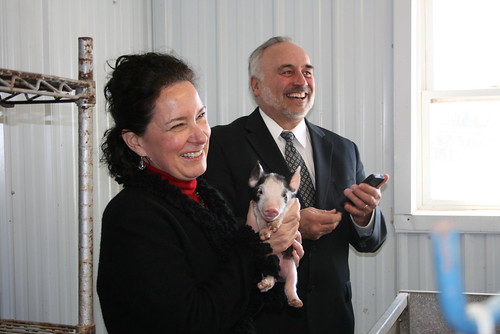
I’d been told the neighboring towns of Ranson and Charles Town, West Virginia, are vibrant communities where people want to live, work and raise a family. During a recent visit with local leaders and USDA’s community economic development partners in the area, I saw first-hand how regional approaches and partnerships are attracting public and private investment to the region that make this quality of life possible.
Along with WV Rural Development State Director Bobby Lewis, I recently convened a discussion with the mayors and city planners of the two towns to learn more about their successes and strategies. I learned that Charles Town and Ranson are thinking big, re-imagining their future, and developing a blueprint for their long-term economic viability. You see, by working together to develop comprehensive objectives and plans, the communities have been able to leverage grants from the Department of Housing and Urban Development, the Department of Transportation, and the Environmental Protection Agency to develop new businesses, transportation links, and affordable housing. And in 2011, USDA contributed an important piece, providing funding through a Community Facilities Direct Loan for a much needed ambulance shelter.
This is exactly the kind of community and economic development approach USDA encourages and supports. By working with communities and organizations that have engaged in innovative, regional partnerships, USDA has an opportunity to make more strategic investments that will positively impact the economic vitality of the entire region.
In thinking about our work on behalf of millions of Americans to enhance the economic well-being and quality of life in rural communities, we know that it is not only about what we do, but how we do it. As part of the President’s Ladders of Opportunity agenda—which posits that every child, no matter where they’re from, should be able to rise to the middle class—we’re targeting our resources to the families and communities that need them most. And we’re engaging directly with local leaders and community members, leveraging limited resources through local partners, and measuring our progress. We call it community economic development—or simply good, smart business.
